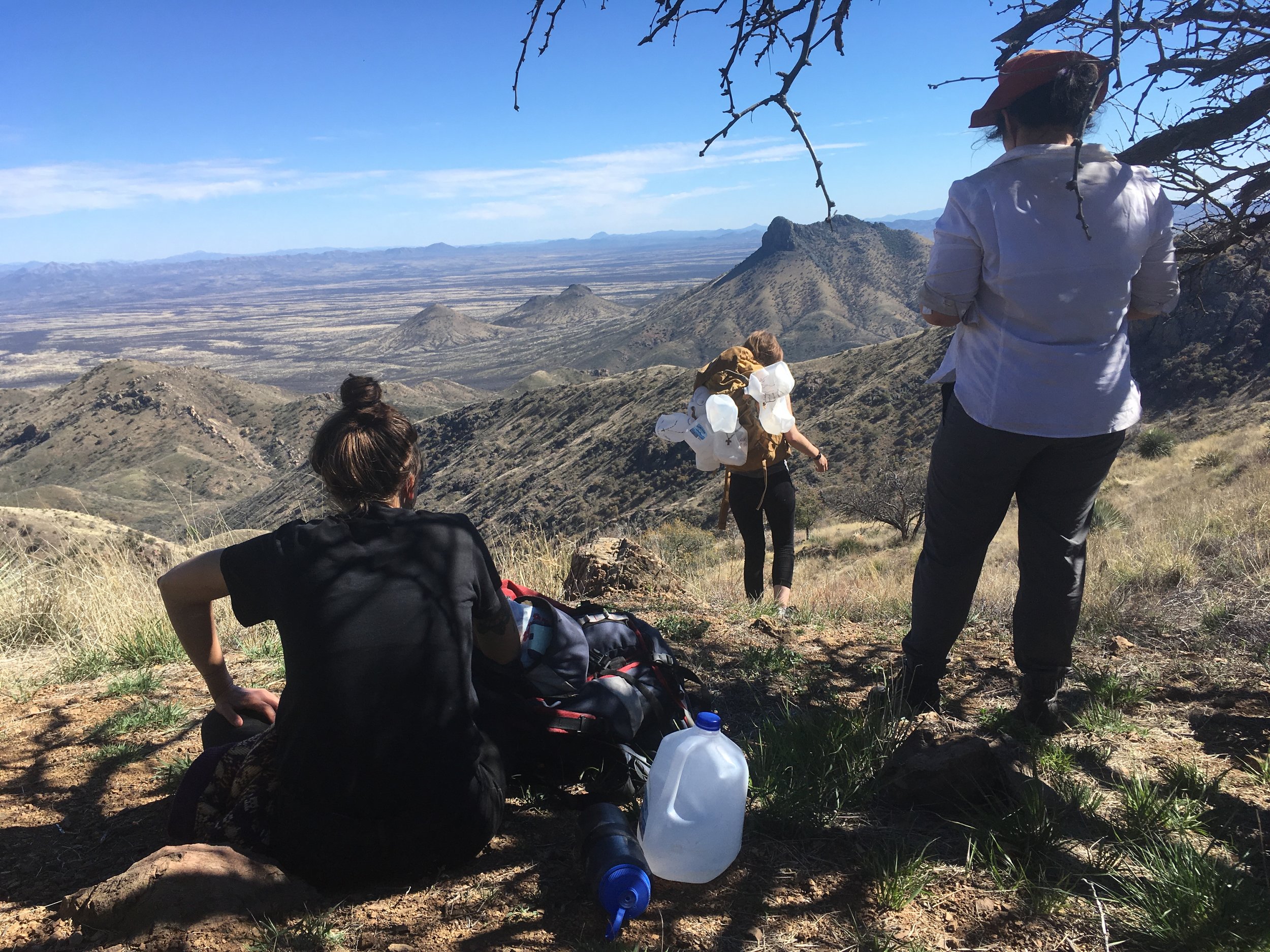Thursday, 3/28/19
No More Deaths volunteer week, day 5
For our last day of patrols I joined a grueling hike up the slopes of Baboquivari. The walk began in a winding wash through grasses and catclaw; next came a rough scramble over clattering purple rocks and gravel alongside a thin streaming waterfall; then there was a long plodding slog up a ridge to, finally, the central spine of the range.
From there the view was breathtaking.
To the west: the Tohono O’odham reservation, that is, the miles of sovereign tribal land currently designated as belonging to this entire region’s original inhabitants. Tohono O’odham: in their language, “Desert People.”
To the south: Mexico, not that there was any delineation in the land to distinguish where my country ended and someone else’s began—nothing I could see from up there, at least.
To the east: the valleys and mountains of Arizona where we’ve been trucking along rutted dirt roads to different half-hidden trails and drops for the last week.
A week for me. Fifteen years for No More Deaths as an organization. A century and a half for Mexicans and others migrating for work, trade, war, refuge. How long for the Tohono O’odham before that? A thousand years? Ten thousand would be closer. These are the mountains and paths of their ceremonies and trade routes, the stuff of their lives. The Tohono O’odham are the people of this desert. They shouldn’t need a marked-off reservation; all of Arizona and northern Mexico should be known as Tohono O’odham land. The rest of us—immigrants, militias, law enforcement, humanitarian aid workers—we’re all just trespassing as we crisscross their lands with backpacks or patrol with water or guns.
Ten thousand years of Desert People. A century and a half of border migration. Fifteen years of No More Deaths activity.
Just a week for me, and a week feels like all I can take. I’m scratched, bruised, stiff, sore, sweaty, grimy, tired. Also aching with sorrow for the people who suffer here and gratitude for the people I’ve worked with. I’m lucky to have met these facilitators and fellow volunteers, lucky to have been able to offer some small help while we were out on water drops or search and recovery efforts. And now I’m lucky—so, so lucky—to have the legal right and physical resources to simply pack up and head home to my loved ones tomorrow.




